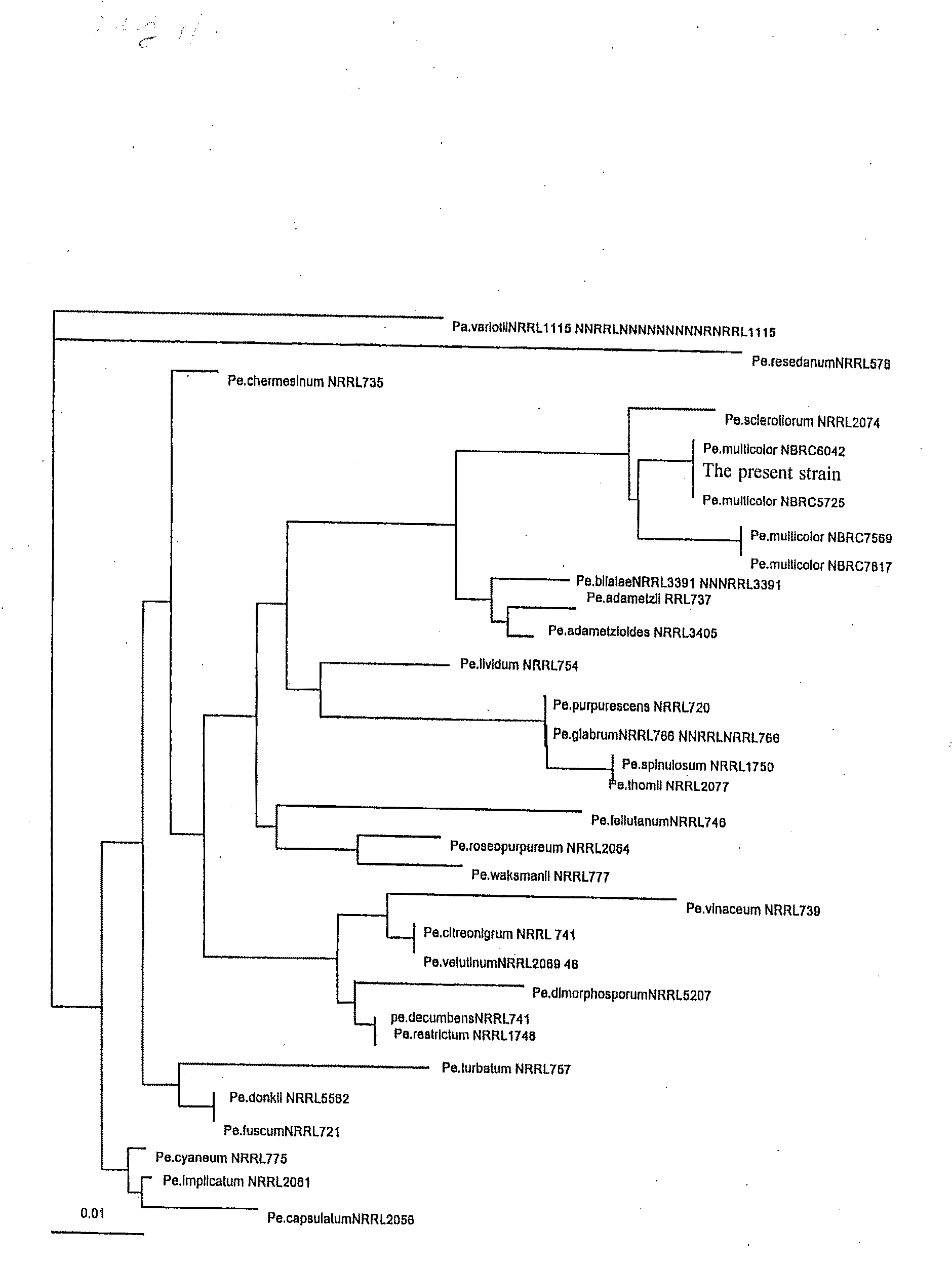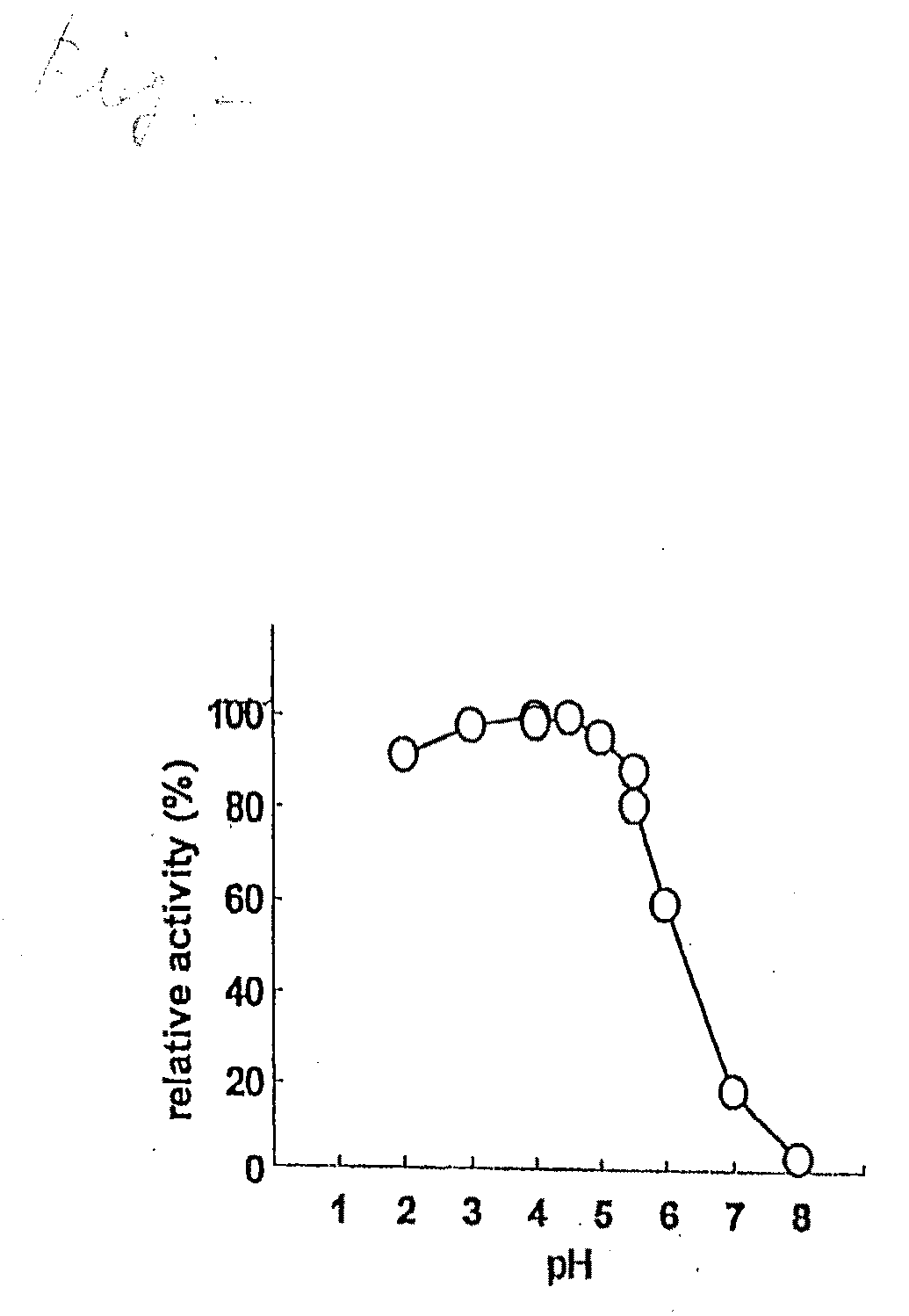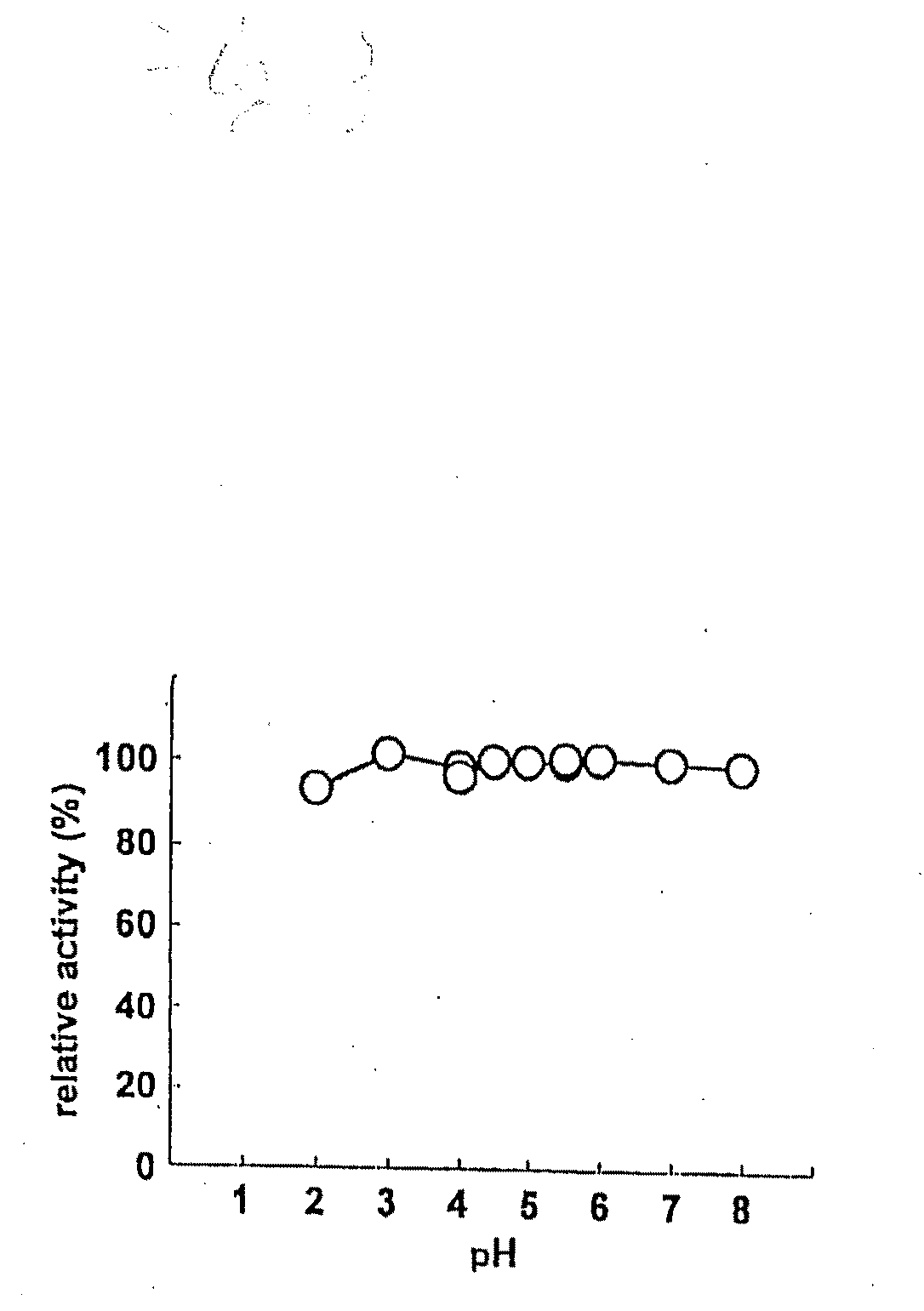Novel diglycosidase and gene encoding the same
- Summary
- Abstract
- Description
- Claims
- Application Information
AI Technical Summary
Benefits of technology
Problems solved by technology
Method used
Image
Examples
example 1
Culture of Penicillium multicolor IAM7153
[0058]Penicillium multicolor IAM7153 was grown, for more efficient production of the diglycosidase. The Penicillium multicolor IAM7153 is obtained as a type culture from the Institute of Molecular and Cellular Biosciences, the University of Tokyo. Penicillium multicolor IAM7153 was inoculated on a slant potato dextrose agar medium (potato extract: 200 g / L, glucose: 20 g / L, agar: 15 g / L, pH: 5.6±0.2) and incubated at 27 to 30° C. for 10 to 14 days. 10 ml of sterilized 0.9% Tween 80 solution was added to the slant face on which the microorganism has grown sufficiently, allowing suspension of the conidia. The conidium suspension was filtered through a sterilized glass filter G3 (manufactured by Hario), to give a conidium solution. The conidia obtained was washed and resuspended in 10 mL of 0.9% Tween 80 solution.
[0059]The conidium suspension of Penicillium multicolor IAM7153 was irradiated with ultraviolet ray (15-W UV lamp, distance: 50 cm). Af...
example 2
Purification of the Diglycosidase Produced by Penicillium multicolor TS-5
[0063]Penicillium multicolor TS-5 was streaked on a slant potato dextrose agar medium (potato extract: 200 g / L, glucose: 20 g / L, agar: 15 g / L, pH: 5.6±0.2), and the medium was incubated at 27 to 30° C. for 10 to 14 days, until favorable spores were formed. The microorganism in an area of approximately 5 mm square on the sufficiently grown slant medium was separated with a sterilized platinum loop and inoculated into a preculture medium.
[0064]The following nutrient solution was used as the preculture medium: Preculture medium: defatted soybean (Honen): 20 g / L, glucose: 30 g / L, KH2PO4: 5 g / L, (NH4)2SO4: 4 g / L, dry yeast (Kirin Brewery Company): 3 g / L, Adecanol LG-126 (Asahi Denka): 0.5 mL / L, pH not adjusted. 100 mL of the medium was placed in a 500-mL Shaking flask and sterilized at 121° C. for 20 minutes. After inoculation of the microorganism, the medium was incubated at 27±1° C. and a shaking velocity of 140 r...
example 3
Isolation and Analysis of Diglycosidase Gene
1. Determination of the N-Terminal Amino Acid Sequence of Diglycosidase
[0075]The amino acid sequence of the diglycosidase produced by the Penicillium multicolor TS-5 was analyzed.
[0076]The diglycosidase obtained in Example 2 was analyzed in a protein sequencer (manufactured by Hewlett-Packard Development Company), to give the N-terminal 15-residue amino acid sequence shown by SEQ ID No. 1:
SEQ ID No. 1:Ser-Thr-Tyr-Leu-Asn-Trp-Thr-Thr-Phe-Asn-Ala-Val-Gly-Ala-Asn
2. Extraction of Chromosomal DNA
[0077]Penicillium multicolor TS-5 was subjected to shaking culture in a YPD medium for 3 days; the microorganism obtained was collected by filtration through a No. 2 filter paper (Advantech) in a Buechner funnel and washed with sterile water. After removal of excess water, the microorganism was frozen at −80° C. and freeze-dried in FREEZONE (LABCONCO). After drying, the solid mass was pulverized into a fine powder with sea sand in a mortar, and 12 ml of...
PUM
| Property | Measurement | Unit |
|---|---|---|
| Temperature | aaaaa | aaaaa |
| Temperature | aaaaa | aaaaa |
| Temperature | aaaaa | aaaaa |
Abstract
Description
Claims
Application Information
 Login to View More
Login to View More - R&D
- Intellectual Property
- Life Sciences
- Materials
- Tech Scout
- Unparalleled Data Quality
- Higher Quality Content
- 60% Fewer Hallucinations
Browse by: Latest US Patents, China's latest patents, Technical Efficacy Thesaurus, Application Domain, Technology Topic, Popular Technical Reports.
© 2025 PatSnap. All rights reserved.Legal|Privacy policy|Modern Slavery Act Transparency Statement|Sitemap|About US| Contact US: help@patsnap.com



